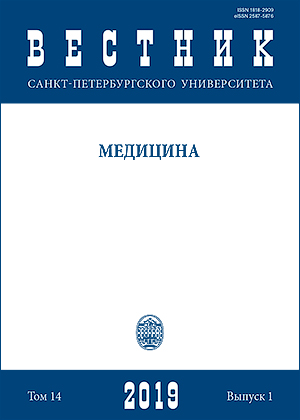Sanitary-and-epidemiologic regulation of living conditions of persons with disabilities
DOI:
https://doi.org/10.21638/11701/spbu10.2019.109Аннотация
After ratification of the Convention on the rights of persons with disabilities (hereinafter — the Convention), Russian Federation has started to bring the national legislation into compliance with the requirements of the Convention in terms of social policy on the rights of persons with disabilities and during 2013–2017 developed a number of legislative and regulatory acts to implement the main provisions of the Convention. Assessment of compliance of regulatory and legislative acts of Russian Federation and the results achieved in terms of providing disabled persons with conditions equal to other people, as regards the access to places of residence for independent living and integration into society without discrimination is an urgent task and the purpose of the study, which included: study of principles and standards of the Convention on the rights of persons with disabilities and measures to implement the right of persons with disabilities to an independent lifestyle in the legislation of Russian Federation; the study of sanitary legislation on the presence of requirements to ensure favorable conditions for the independent living of disabled people in apartment buildings on an equal basis with other people and followed up cohabitation of small groups of disabled people in separate living accommodations.
Ключевые слова:
persons with disabilities, Convention on the rights of persons with disabilities, sanitary and epidemiological regulation, living conditions
Скачивания
Библиографические ссылки
References
with disabilities: research and experimental design.Architecture and construction, 2003, no. 5 (159),pp. 2–7. (In Russian)
Council on guardianship in the social sphere under the Government of the Russian Federation on 21.05.2014. at the round table “Innovative practices of social rehabilitation of persons with disabilities” in IPK DSZN 30.09.2014. Available at: http://srv33768.httest.ru/novosti/doklad_zarubezhnyj_opyt_socialnoj_integracii_invalidov/ (accessed: 16.07.2018). (In Russian)
ru/files/5829d0/4b416d/a1872d/8b4577/soprovozhd.prozhivanie_razdole.pdf (accessed: 07.08.2018).(In Russian)
https://www.researchgate.net/publication/320187754_Conceptual_Models_of_Disability_and_Their Role in the Daily Routine of Clinical Rehabilitation (accessed: 07.08.2018).
Available at: https://www.wiley.com/en-us/Site+Planning+and+Design+for+the+Elderly%3A+Issues%2C+Guidelines%2C+and+Alternatives-p-9780471285373 (accessed: 16.07.2018).
of Universal Design, Version 2.0. Raleign, N. C., Center for Universal Design, North Carolina State University, 1997. Available at: https://www.sphassociates.ca/uploads/files/Principles%20of%20Universal%20Design.pdf (accessed: 16.07.2018).
complexes. Available at: https://nnd.name/2013/01/dostoynaya-zhizn-i-demokratiya-invalidov-vshvetsii/(accessed: 07.08.2018).
no. 56 (4), pp. 322–340. Available at: https://books.google.ru/books?id=AJWQBAAAQBAJ&pg=PT167&lpg=PT167&dq (accessed: 07.08.2018).
Загрузки
Опубликован
Как цитировать
Выпуск
Раздел
Лицензия
Статьи журнала «Вестник Санкт-Петербургского университета. Медицина» находятся в открытом доступе и распространяются в соответствии с условиями Лицензионного Договора с Санкт-Петербургским государственным университетом, который бесплатно предоставляет авторам неограниченное распространение и самостоятельное архивирование.





